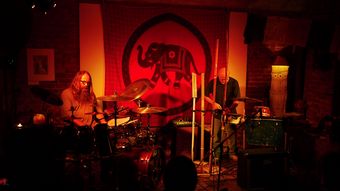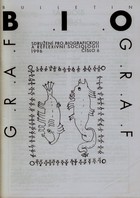Obrázek z fotogalerií

Nejbližší vystoupení/akce
Poslední záznamy z blogu:
Konopásek kontra Latour: Barša má vidiny pistolníků a z vlastních kvérů se mu ještě kouří
Reakce na Baršův text "Pragmatická sociologie emancipace: Latour vs. Boltanski" a zároveň doplněk k mému textu "Věda a politika, vpravo, vlevo"
[celý text]Lítáme v tom, někteří beznadějně
Odpověď na recenzi Radka Kubaly, v níž hodně místa věnuje textu, na kterém jsem se podílel
[celý text]K fenoménu Antropocén: Poznámky na okraj mezioborové debaty
V Centru pro teoretická studia UK/AV ČR jsme začátkem roku 2017 začali probírat pojem antropocénu. Tímto slovem se nejčastěji vyjadřuje, že žijeme v epoše, ve které se člověk stal zásadní a hlavní silou, která formuje podobu planety. Antropocén je tedy název pro novou geologickou éru Země. V tomto textu se přimlouvám za složitější a širší chápání antropocénu – takové, které by otevíralo prostor pro mezioborovou diskusi. Jde o pracovní text, náčrt: připomínky a komentáře vítány. Pokud byste náhodou chtěli citovat, ujistěte se, že se mezitím neobjevila definitivní, oficiálně publikovaná verze.
[celý text]Sociologie, na které ne/záleží
Vracím se k sociologicky dutému politickému transparentu na Fakultě sociálních studií v Brně a k širším souvislostem toho případu.
[celý text]Simulakrum jako nadávka?
Bělohradskému se opět podařilo vyprovokovat mne k sepsání malého sociologického komentáře - víc o sociologii než o samotných presidentských volbách
[celý text]Nová verze Atlas.ti je venku, napsal jsem recenzi
Má cenu upgradovat na sedmou verzi tohoto programu pro kvalitativní analýzu http://www.atlasti.com ? - recenze vyjde v časopise Biograf
? - recenze vyjde v časopise Biograf
Vyhlídka na březen
Na adrese http://www.atlasti.com/v7preview.html se objevily informace o tom, co lze snad prý během března čekat v nové, sedmé verzi mého oblíbeného analytického programu
se objevily informace o tom, co lze snad prý během března čekat v nové, sedmé verzi mého oblíbeného analytického programu
Je prý třeba změnit ten postoj a ptát se...
Tak to říkal Václav Bělohradský v Otázkách Václava Moravce (1. 2. 2011) a já se ošíval.
[celý text]Co znamená "sociální konstrukce"?
Dnes mám v rámci oslav 20-letého výročí oslav Centra pro teoretická studia, stejně jako další kolegové, krátce promluvit na libovolné téma ze svého oboru. Rozhodl jsem se v této mini-přednášce shrnout několik vysvětlení k pojmu, který dnes dělá tak často sociologii ostudu, a přitom by nemusel. Tady je ta řeč písemně.
[celý text]

